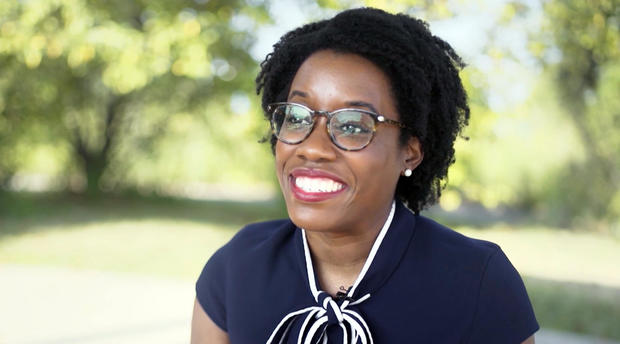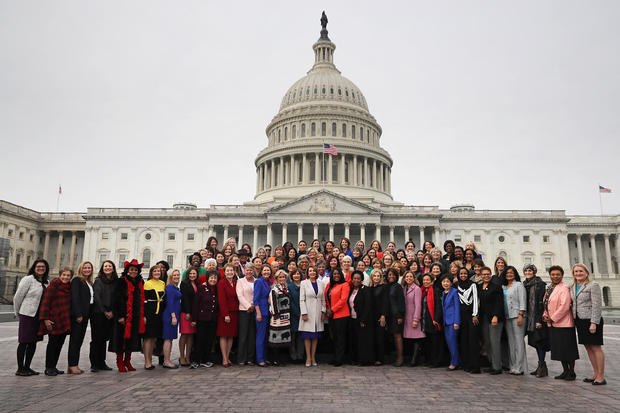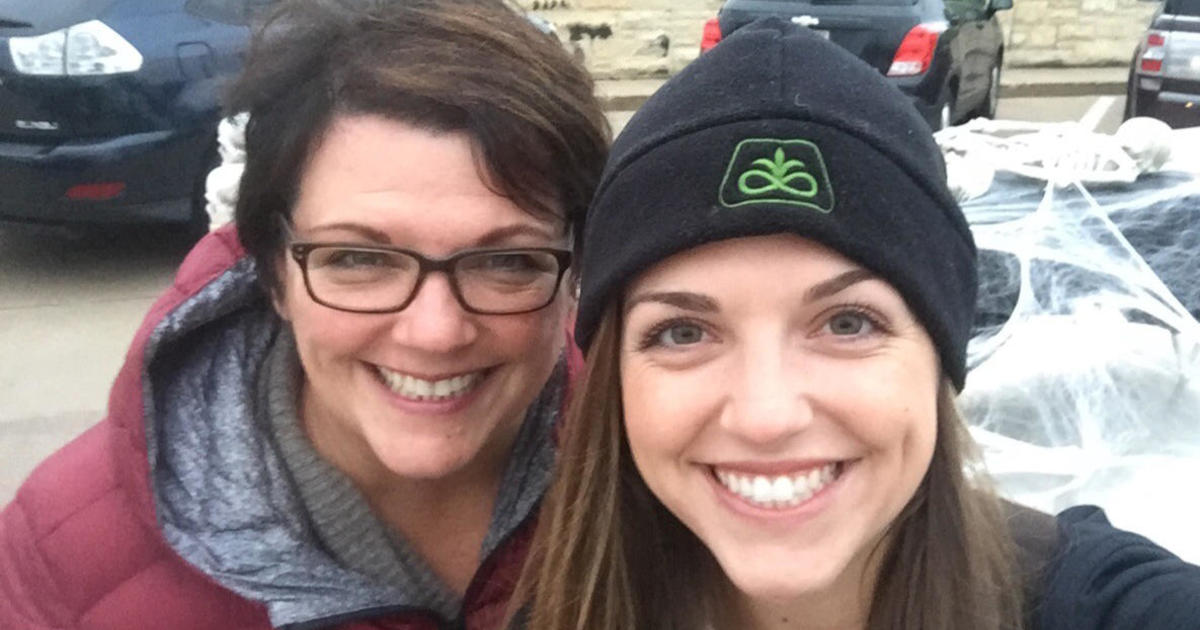More women than ever are running for Congress. One expert calls them "the heart of the resistance."
Watch the new CBS Reports documentary, "Speaking Frankly | Feminism," in the video player above.
When Lauren Underwood, a 32-year-old registered nurse, decided to run for Congress in 2018, she was considered a long shot. Her opponent was a Republican incumbent who had won his previous election by 20 points. But Underwood had grown up in Naperville, Illinois, which is part of the 14th Congressional District. She knew the community well. And she was deeply concerned about attacks on the Affordable Care Act.
"I went to a town hall that my congressman hosted in the spring of 2017," Underwood recalls. "And he said that he was only going to support a version of repeal that let people with preexisting conditions keep their health care coverage. And then literally two weeks later, he voted for the American Health Care Act, which is the version of repeal that did the opposite."
The GOP bill ultimately failed, but Underwood had found her cause. She launched her campaign to join the U.S. House, one of 476 female congressional candidates across the country that year — a historic "pink wave," up 59% from the previous record. Underwood won, joining 100 other women as members of the most diverse Congress in history.
Now 2020 is set to break the record again, with 583 women filing as candidates for House races. Of those, 301 won their primary and will be on the ballot this November. This year's increase in female candidates is coming from two groups in particular: Black women and Republicans.
At least 130 Black or multi-racial Black women filed to run for congressional seats in this year's election. That's up from just 48 in 2012, according to the Center for American Women and Politics. As of August, 44 of them had won their primaries — 35 Democrats and nine Republicans.
In the past, Black women have done particularly well in majority-Black districts. But this year, many of them are running in majority-White districts and against Republican incumbents.
"The conventional wisdom said a 30-year-old Black woman couldn't flip a congressional district in suburban Chicago," says Underwood. "But my congressional district is less than 3% Black. And I won." She is the first person of color to represent the community. Underwood believes it was her focus on the issues that mattered to her continents that helped her win.
"I had alignment and expertise on the issue that was most important to them, which was health care," she said. She had served in the Obama administration, focusing on health care and pandemic threats like Zika and Ebola. "My district knew that I brought real credibility, understood the problem and could be aggressive in working towards solutions that would help themselves and their families."
Nearly three-quarters of the women who ran for Congress in 2018 were Democrats. Republican women in Congress saw their ranks decimated in 2018, when the party suffered a net loss of 40 seats to the Democrats. Of the 101 women currently serving in the House, only 13 are Republicans.
This year, Republicans are hoping to narrow the gap. Data compiled by the Center for American Women and Politics show 227 Republican women filing to run as candidates for the House, up from 120 in 2018. Of those, 95 won their primary and will be on the ballot this November. But it's going to be a tough battle: Roughly half of the Republican women who won their primaries will compete in districts considered solidly Democratic.
Rachel Bitecofer, a political scientist and senior fellow at the Niskanen Center, says that the 2017 state house elections in Virginia paint a picture of the challenge Republicans may face this year. More than 50 women ran, and 28 won, helping Democrats gain control of both chambers for the first time in a quarter-century.
"They ran more women and they picked up control of that whole state government now in Virginia," Bitecofer said. "Women are the heart of the resistance."
Still, Republican leaders are publicly optimistic about their prospects. "There are more women running in the Republican Party for Congress than at any time in the history of this party," said House Minority Leader Kevin McCarthy when questioned by reporters about the party's image with women. "So if you want to measure it based upon that, I think we're improving,"
Some scholars and political scientists believe that the increase in women candidates and greater representation among office holders is important — and not just for symbolic reasons. Jennifer Nash, a professor of Gender, Sexuality and Feminist Studies at Duke University, argues that the presence of more Black women on the ballot will help address issues that are often overlooked.
"Can you get to work without taking three or four of five buses? How much does it cost?" Nash offered as an example. "All of these questions that Black women have been raising in their communities for decades, I think, will suddenly have a national attention and will be understood as rightfully political."
"Do women lawmakers behave differently than male lawmakers?" said Bitecofer. "Do they introduce legislation that's different? Do they focus on different issues? In other words, are women better represented when there are more women at the table? And the answer is yes. We know it's not just about feeling good or some kind of symbolic tokenism. It matters."





